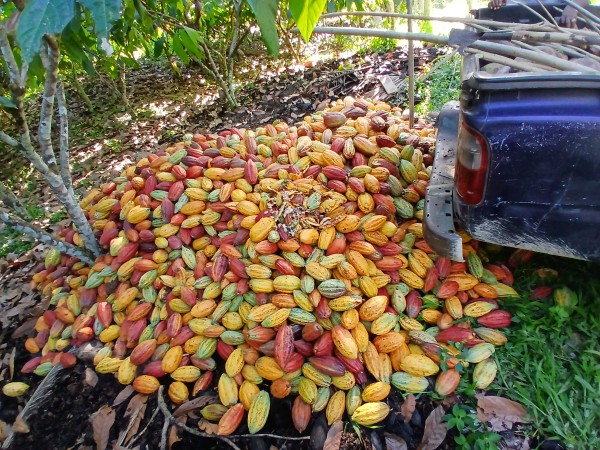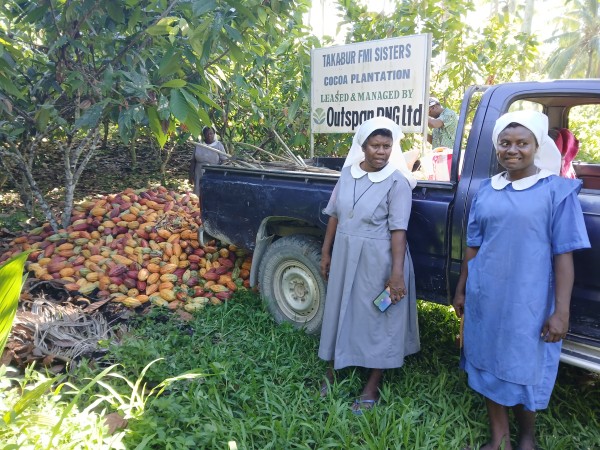VSA partner organisation the Filiae Maria Imakulate (FMI) Sisters is the first indigenous religious Order of the Catholic Church in Papua New Guinea. Since its inception in 1912, the group has worked tirelessly to serve and uplift women in the community. Today, the FMI Sisters remain active in their mission of supporting women in building leadership skills, faith-strengthening, advocacy and addressing communities’ concerns and welfare. In recent years, the FMI Sisters established the first women’s refuge (Couppe Meri/Women’s Safe House) in East New Britain. Currently run by Sr Serah, the Safe House provides a safe place and ancillary services for abused women and their children – and it has recently celebrated a significant milestone: the first harvest from its cocoa plantation.

The first cocoa pod harvest
This project, initiated several years ago with the assistance of VSA UniVol Laura Barnett and a local cocoa-buying company, was designed to provide financial support to the women’s refuge, which addresses a critical gap in East New Britain, where government funding for women’s shelters is unavailable. Recognising the importance of creating a sustainable income source for the refuge, the volunteer, in collaboration with the local company, assisted the Sisters in planting high-quality cocoa seedlings with the goal of developing a long-term funding solution.

Sister Geralda Kaliopa (back), Sister Rosemary Babate (grey dress) and Sister Florence Siawol (blue dress) with the harvest.
After years of careful cultivation, the cocoa trees have begun to bear fruit, and the first successful harvest has now been completed. The cocoa beans, renowned for their quality, are contributing not only to the running of the women’s refuge but also to Papua New Guinea’s agricultural export sector, generating valuable foreign exchange earnings.
As well as Laura Barnett, who specifically aided in establishing the cocoa plantation and fundraised and liaised to get the safe house project off the ground, several VSA volunteers have been involved in setting up and developing the refuge, from Laura’s successor Finn Egan, to Gordon Botha who project-managed the safe house build, to Fiona Richards, who offered back office and administrative support.
‘This achievement is a testament to the power of volunteerism,’ says Johannes Gambo, Papua New Guinea Programme Manager. ‘It exemplifies the lasting contributions volunteers continue to make, even long after their departure. Volunteers are like farmers – they plant seeds today, trusting in a better tomorrow.’
